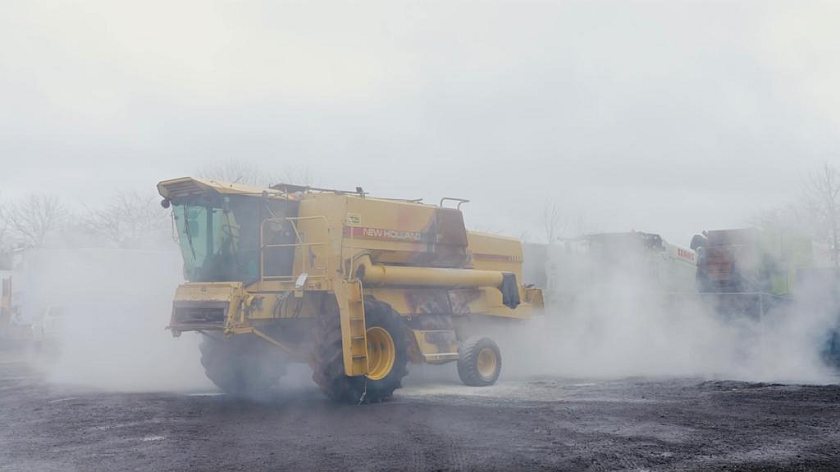
The cost of on-farm fires surged by 37% to over £110 million last year, new data shows, and blazes were larger in scale than usual.
The figures, published on Monday (25 November) by NFU Mutual, has sparked calls for farmers to review and update fire prevention measures.
There was a 15% fall in the number of fire claims involving growing crops, buildings and farm equipment reported to the rural insurer in 2023.
However, the total cost of these fires rocketed 37% to an estimated £110.3m in 2023, compared to £80.4m in 2022.
That rise could be down to larger-scale fires being reported compared to previous years, as well as rising values of replacement equipment, building materials and labour.
According to NFU Mutual, the main causes of farm fire claims in 2023 were electrical faults, lightning strikes and arson attacks.
The cost of agricultural vehicle fires remained high at an estimated £37.7m in 2023, driven by a rise in the cost of tractor fire claims to £20.4m.
However, lower summer temperatures, on top of industry calls for farmers to install fire suppression systems or similar, brought a fall in the cost of combine harvester fires, from £11.1m in 2022 to an estimated £7.4m in 2023.
Hannah Binns, NFU Mutual rural affairs specialist, said a major fire was one of the most devastating things that could happen on a farm.
“A lot of farms today frequently have larger quantities of flammable straw and other crops often stored close to tractors and other high-value equipment, so doing everything possible to reduce the risk of a fire breaking out is so important.
“A comprehensive farm fire prevention plan, covering buildings, managing livestock, maintenance and cleaning schedules for machinery can all help minimise the risk of a blaze.
"A robust evacuation procedure can help save lives if a fire does break out," she noted.
Louise Nicholls, agricultural vehicle specialist at NFU Mutual, said it was concerning that the cost of agricultural vehicle fires remained high last year despite the lack of extreme high temperatures.
She said: “It is important for all farmers to make sure that plant and vehicles are regularly maintained and checked for wear and damage, particularly to electrical parts and wiring.
“For highly vulnerable kit, including combine harvesters, tractors and balers, rigorous attention to maintenance and cleaning is essential.
"We strongly recommend that farmers fit fire suppression kits to their combine harvesters."
Farm fire figures also fluctuated across the UK, with cost rises in the North West (up 549% to an estimated £28.8m) and South West (up 82.8% to £19.1m).
Elsewhere, the East and the South East saw a decrease, down 26.5% and 19.9% respectively.
How can I improve fire safety?
NFU Mutual has issued a fire safety guide for farmers to follow:
• Have a plan in place – Put people at the heart of your fire plan and ensure everyone on site knows what to do in the event of a fire.
• Don’t mess with electrics - Electrical faults are a major cause of farm fires and electric shocks can cause death or severe injury.
• Suppress the risk – Suppression systems are a major game changer for the industry and play a critical role in detecting, containing and extinguishing fire.
• Keep on top of your housekeeping – Good housekeeping is absolutely essential to ensure materials and machinery are stored correctly and to eliminate dust and debris.
• Control hot work – Welding, cutting or grinding equipment, along with blow lamps and blow torches can produce sparks which can turn into fires if they hit a combustible material.
